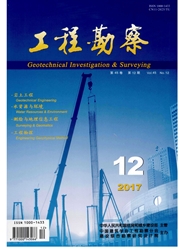

 中文摘要:
中文摘要:
基于雷达干涉测量的原理,对InSAR中的一般误差和大气误差进行了分析。分别就定位误差和形变测量的影响建立了误差模型,定量地分析了各种误差对InSAR结果的影响程度,从而为技术应用范围,误差消除方法的选择,以度利用外部数据源的精度要求提供依据。同时讨论了粗差存在情况下InSAR配准和基线精化中的可靠性问题,通过可靠性分析,最优化控制点配置和数目,使系统具有较强的几何强度和抗差能力。
 英文摘要:
英文摘要:
Based on the principle of InSAR, numerous error sources in InSAR are analyzed carefully. The error models are established for error positioning and deformation measuring respectively. The impacts of all errors on InSAR result are analyzed quantitatively, which provide a basic idea to evaluate the application scope of the technique, the selection of error correction method and the precision request for external data sources etc. The reliability problem in co-registration and baseline estimation is also discussed in the presence of outliers. Deployment and number of GCPs are optimized through the reliability analysis, which can make the system more capable of resisting outliers with strong geometric strength.
 同期刊论文项目
同期刊论文项目
 同项目期刊论文
同项目期刊论文
 期刊信息
期刊信息
